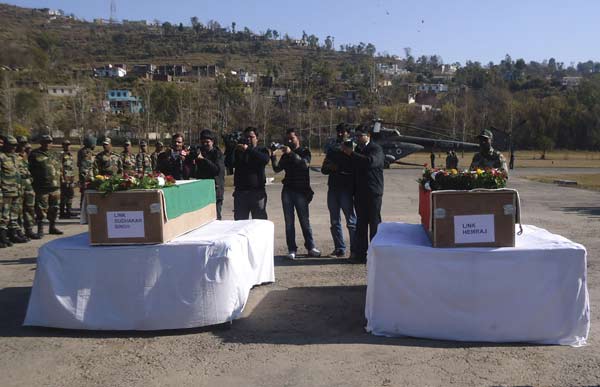
Formally announced in February 2012, the DNA profiling centre and data bank at Pune’s Armed Forces Medical College (AFMC) is finally set to take off by mid-2013.
The centre which is to be one of the handful DNA profiling centres of the country is expected to come handy to establish identity of defence personnel, especially in case of unforeseen tragic events when bodies are found in mutilated/charred conditions.
Air Marshal DP Joshi, director general, Armed Forces Medical Services, said that the centre had started DNA extraction, sequencing and storage from November 22, 2012.
“Initially we want to do a 100-odd samples of DNA extraction to arrive at a sort of standardisation of the entire programme. We also have to establish the authenticity and accuracy of the processes and establish that it matches the relevant standards.
"Hence, we are getting an expert PhD scientist with expertise in DNA extraction from the Defence Research and Development Organisation (DRDO),” said Maj Gen Velu Nair, dean, AFMC. According to senior AFMC officials, the project is stuck in legal hurdles.
An official said that when the lab was inaugurated in 2012, permission was sanctioned to extract and establish DNA. But later it was realised that legal ramifications had not been discussed.
“For example, if there is an untoward incident and DNA bank is used to establish identity of the soldier, will this evidence stand in the court of law under the Indian Evidence Act? For that the authenticity of processes of DNA extraction, tissue typing in establishing identity need to be approved.
"An application has been sent in this regard to the Ministry of Health which in turn wrote to Ministry of Law and Justice. We are waiting for the approval before starting large scale DNA extractions,” said the official.
Meanwhile air force officials have already asked AFMC officials to create a DNA bank of all its personnel.
“We have received the request from air force. We have the technology, the manpower and expertise. Once the approval is received, we can start the DNA repository and can request for funds based on requirement,” said Joshi.
DNA profiling is accepted as the most advanced and reliable method of establishing identity of living individuals as well as dead bodies and body remnants. DNA can be extracted from small portions of any body tissue, including bones, teeth and hair.
These can be recovered from bodies that have been subjected to severe mutilation and destruction as well as decomposition. Therefore, positive identification of such body parts can be established, provided DNA profiling of the individual is carried out during life and the information is stored in a data bank/repository, to cater to such unforeseen tragic eventuality.
Wednesday 6 February 2013
http://www.dnaindia.com/mobile/report.php?n=1796897

0 comments:
Post a Comment